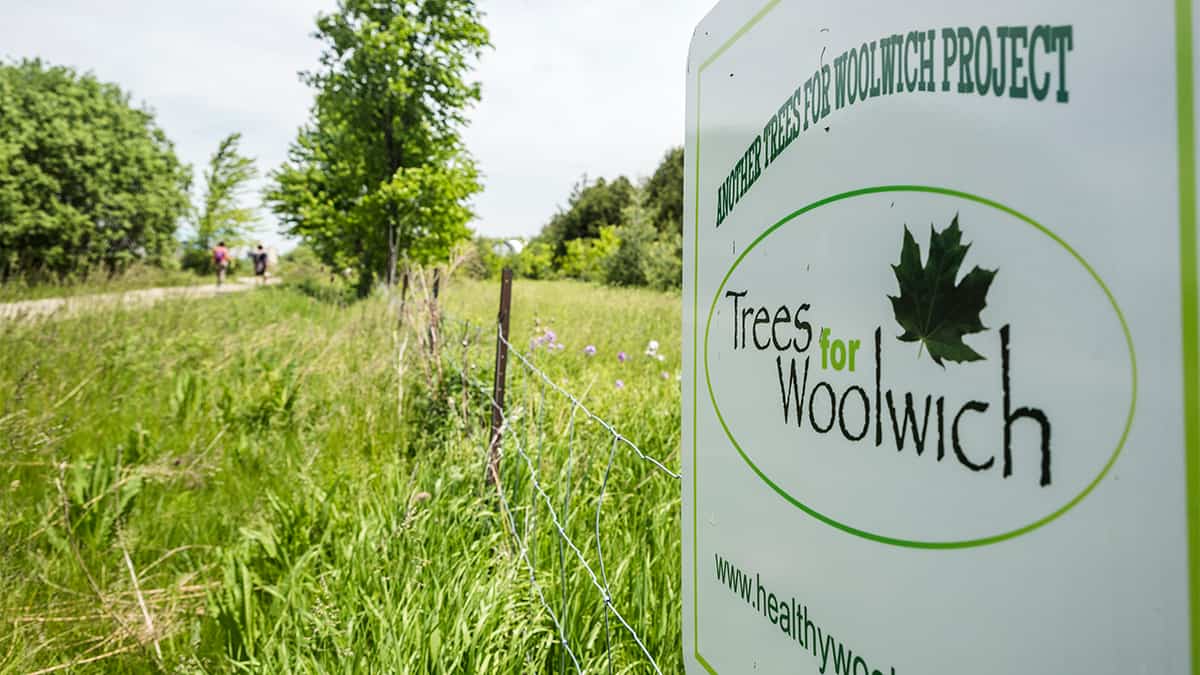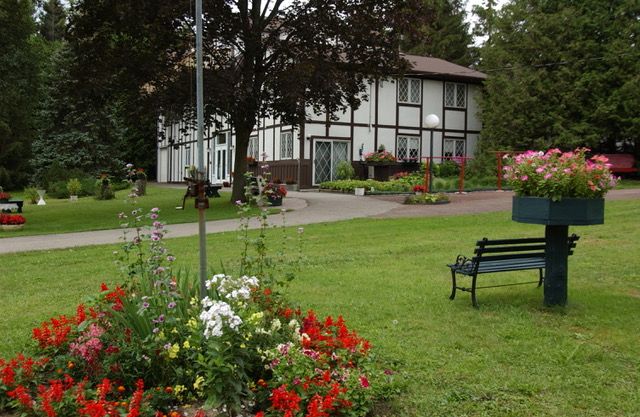Volunteers with Trees for Woolwich last month received a donation of $60,000 from Wallenstein Feed and Supply, meaning the group has now almost met their funding goal for the first year of the three-year project.
The donation is for the group’s Bring Back the Maples project, which aims to have trees planted along the township’s rural roadways, replacing the older trees now dying off from old age. The plantings will also increase tree cover in the township.
“We were impressed with the project and decided to support it,” said Rick Martin of Wallenstein Feed Mill. “The size of the project is impressive. Apparently this is the largest roadside reforestation project undertaken in Ontario since the 1880s. The relatively small investment required seems to be good value.”
Staff with Wallenstein Feed and Supply have previously donated to Trees for Woolwich. Elm trees for the Elmira Nature Reserve’s elm alley along the entrance were donated by the company, and planted by volunteer staff.
“Our employees are very generous people. We encourage them to volunteer their time and we occasionally do joint charitable projects together. This is another example of a project that makes our employees proud to work at WFS,” said Martin. “One other point: It’s true that it’s much better not to cut down the trees in the first place. Planting young trees is second best, but it’s much better than doing nothing!”
Inga Rinne, a volunteer with Trees for Woolwich, says the multi-year nature of the donation will be helpful to the group, because it allows for some longer-term stability for planning and continuity.
The goal of the project is to plant 22,000 trees over the next three years. Each year requires $110,000. Rinne says the donation from Wallenstein Feed and Supply marks $100,000 for the first year, with other donations and funding having come from the Township of Woolwich, the Region of Waterloo, Premium Insurance, MTE, and a private donor.
One of the cost-saving measures employed by Trees for Woolwich is the use of smaller trees, says Rinne.
“The smaller trees actually have several advantages,” she said. “One is that they need much less watering. So, watering 22,000 trees would be just a monumental task. And the plan here is, because they’re small and adaptable and they’re sheltered – you have a cocoa mat on them and a tree shelter which protects them somewhat. They get planted during the wet season: you put them in in the fall and the plan is not to have to water them at all.”
This spring, some watering was needed, as the weather was dry. “We had to spend some money doing some emergency watering at the end of May, beginning of June,” she said.
“We are really gratified by how members of our community have rallied behind this project. People seem to recognize the importance of what we’re trying to achieve, and the numerous benefits that these trees will provide.”
The next round of planting with Trees for Woolwich will be in the fall.









